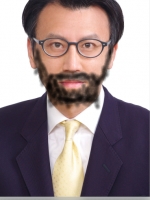※Emerging trends in the digital Copyright Law
數位著作權法顯現之新趨勢
This article aims at getting to know about how computer-based works are protected under copyright law and how the international community has responded to the challenges of digital technologies with respect to intellectual properties. It will also discuss how the Indian Copyright law has evolved in this digital era and identify the loopholes in the present framework for the protection of copyrights.本文之目的在於讓諸位知悉以電腦為本位的著作在著作權法下如何受到保護,以及國際社群對有關智慧財產之數位科技的挑戰做出之回應。同時討論印度著作權法在此數位時代為如何之演進及當下就著作權保護之框架發現漏洞。
The worldwide advancement of digital technologies has given birth to multiple computer-based works such as computer programs, databases, computer software, and other multimedia works on the internet.
全世界數位科技的提升給予諸如電腦程式著作、資料庫、電腦軟體及其他網路多媒體著作等以電腦為基礎之多元著作新生。
The computers are programmed with a given set of instructions to achieve certain results, these set of instructions are known as programs. The Encyclopedia Britannica defines a computer program as a detailed plan or procedure for solving a problem with a computer; more specifically, an unambiguous ordered sequence of computational instructions necessary to achieve such a solution.
電腦程式係被給予一組達成特定結果之指令,這成組之指令為人所知之程式。
Programs stored in the memory of a computer enable the computer to perform a variety of tasks in sequence or even intermittently. For formulating a task, a computer program is written by the programmer which is known as ‘source code’ and then the computer program is converted into the appropriate computer language (machine language) to be run by the computer which is called ‘object code’. The object code and source code are the two different but equivalent forms of the same computer program. Thus, one who owns the source code also holds the ownership of the object code.
Under the TRIPS Agreement, the computer programs are granted copyright protection in the same manner as any other literary work. In consonance with the same, Indian law covers the copyright protection of computer programs under the Copyright Act, 1957. In 1994, the Act was amended to include computer programs and databases in the definition of literary works. Section 2 of the Act defines computer programs as “a set of instructions expressed in words, codes, schemes or in any other form, including a machine-readable medium, capable of causing a computer to perform a particular task or achieve a particular result”.
Although computer programs fall under the category of literary works, the rights and infringement concerning computer programs are provided under separate provisions of the Act. The rights for the computer program copyright, along with sale and rental rights are given in Section 14(b) of the Act.
An amendment was made in 1999 to the Act which entails that commercial rental rights will not apply in cases when the computer program itself is not the essential object of the rental. Since digital technologies are not being used in a wide spectrum of areas affecting daily life such exception is considered appropriate as, otherwise, one may end up paying for technologies that one had no intention of using in the first place.
The violator of the copyrights can be tried in the court made liable for penalties enlisted in the Copyright Act. These violations include making or distributing illegal copies or use without proper authorization. Taking into consideration the distinctiveness of computer programs from other literary works the law has also made the knowing use of infringing copies of computer programs an offence and has also prescribed minimum punishment for it.
